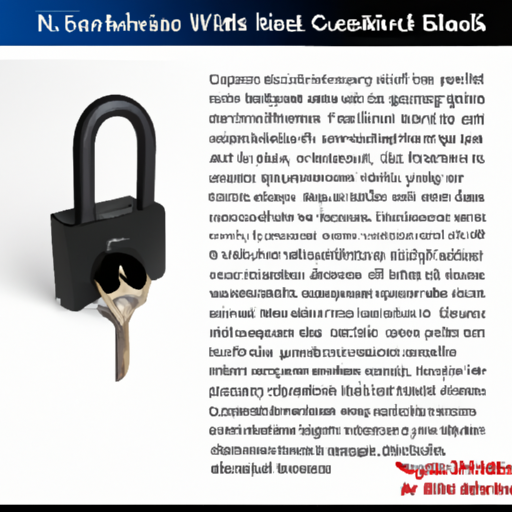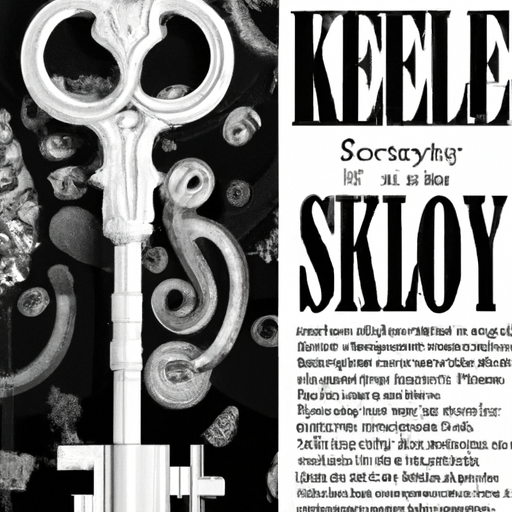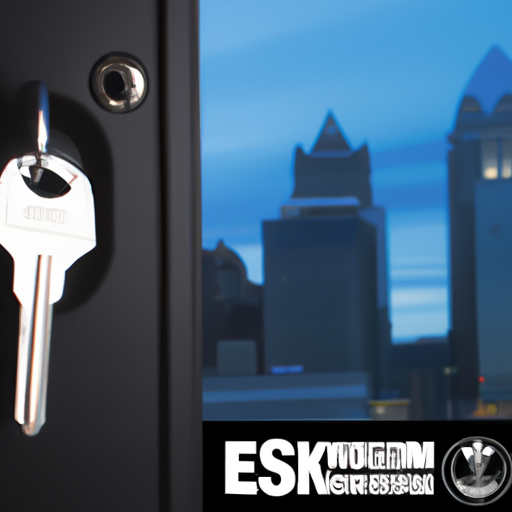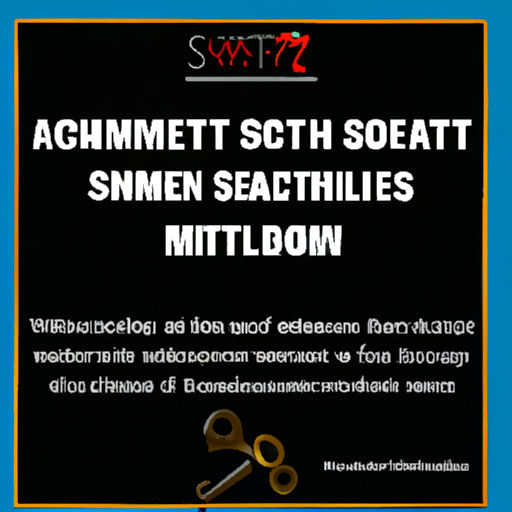
Are you struggling with a jammed lock and wondering if a locksmith can help? Look no further! In this article, we will explore the capabilities of locksmiths when it comes to fixing jammed locks. Whether it’s a door lock, a car lock, or any other type of lock, locksmiths possess the expertise to diagnose and rectify the issue efficiently. With their specialized tools and knowledge, they can restore the functionality of your lock, providing you with peace of mind and convenience. Say goodbye to the frustration of a jammed lock and let a locksmith save the day!
What is a locksmith?
A locksmith is a professional who specializes in locks and security systems. They are trained and skilled in various aspects of locksmithing, including the installation, repair, and maintenance of locks. Locksmiths also provide services such as key cutting, lock rekeying, and emergency lockout assistance.
Definition
A locksmith is an individual who has the expertise and knowledge to work with different types of locks and security systems. They possess the necessary skills to repair, replace, and install locks, ensuring the safety and security of residential, commercial, and automotive properties.
Services
Locksmiths offer a wide range of services, catering to the diverse needs of their customers. Some of the common services provided by locksmiths include:
-
Lock Installation: A locksmith can install various types of locks, including deadbolts, padlocks, cylinder locks, and electronic locks. They ensure that the locks are properly fitted and functioning correctly.
-
Lock Repair: Locks can sometimes become damaged or worn out, leading to issues such as jamming. A locksmith can efficiently repair the lock, restoring its functionality and ensuring proper security.
-
Lock Rekeying: In situations where you want to change the key that operates a particular lock, a locksmith can rekey the lock. This involves altering the lock’s internal mechanism to fit a new key, rendering the old key ineffective.
-
Key Cutting: If you need a duplicate key or have lost your key, a locksmith can cut a new key for you. They have the equipment and expertise to accurately replicate keys for different types of locks.
-
Emergency Lockout Assistance: Getting locked out of your home, office, or vehicle can be a stressful experience. A locksmith offers emergency lockout services, using specialized tools to safely gain access and help you regain entry.
-
Security Consultation: Locksmiths can assess the overall security of your property and provide recommendations to enhance it. They can suggest advanced lock systems, security cameras, and other measures to protect your premises.
Understanding a jammed lock
Dealing with a jammed lock can be frustrating and inconvenient. Understanding the causes of a jammed lock and the different types of lock jams can help you effectively address the issue.
Causes of a jammed lock
There are several reasons why a lock may become jammed. Some of the common causes include:
-
Key Misalignment: If the key does not align properly with the lock’s internal components, it can result in a jam. This can occur due to a bent key, an incorrectly cut key, or a worn-out lock mechanism.
-
Foreign Objects: Sometimes, foreign objects like dirt, dust, or debris can accumulate within the lock, obstructing its smooth operation. These foreign objects can prevent the key from turning smoothly, leading to a jammed lock.
-
Warped Door or Frame: Changes in temperature or humidity can cause wooden doors or frames to expand or contract. If this occurs, it can affect the alignment of the lock, causing it to jam.
-
Worn-out Components: Over time, the internal components of a lock can wear out, leading to problems like jamming. This can happen if the lock has not been properly maintained or if it is old and deteriorated.
Types of jammed locks
Jammed locks can manifest in different ways, and it is important to identify the specific type of lock jam to determine the appropriate course of action. Some common types of lock jams include:
-
Key Stuck in the Lock: In this type of jam, the key is inserted into the lock but cannot be turned or removed. This can occur due to key misalignment, a broken key, or a damaged lock mechanism.
-
Key Turns but the Lock Won’t Open: In this situation, the key successfully turns in the lock, but the lock does not release or open. This can happen if the lock’s internal mechanism is faulty or obstructed.
-
Key Doesn’t Turn in the Lock: When the key cannot be turned at all, it indicates a stiff or frozen lock. This can be caused by the accumulation of dirt, rust, or debris within the lock, preventing smooth movement.
-
Lock Partially Works: Sometimes, a lock may exhibit intermittent issues, functioning properly in certain instances but jamming in others. This can be due to a combination of the aforementioned causes, requiring a comprehensive inspection to determine the specific problem.
Understanding these different types of lock jams can help a locksmith in diagnosing and effectively resolving the issue.

Skills and tools of a locksmith
A proficient locksmith possesses a combination of essential skills and a variety of specialized tools to carry out their work effectively and efficiently.
Locksmith skills
-
Technical Knowledge: Locksmiths have an in-depth understanding of different lock mechanisms, including their components and functionalities. They are familiar with the intricacies of various types of locks and can identify and rectify issues accurately.
-
Manual Dexterity: A locksmith must have excellent hand-eye coordination and precise motor skills. This allows them to manipulate small lock components, insert and turn keys, and perform intricate tasks with ease.
-
Problem Solving: Locksmiths are skilled in problem-solving, as they often encounter complex lock-related issues. They have the ability to analyze the problem, identify the underlying causes, and determine the most effective solution.
-
Attention to Detail: Locksmiths pay close attention to detail, ensuring that every aspect of a lock and its components is examined thoroughly. This meticulous approach enables them to identify even the slightest anomalies and address them accordingly.
Locksmith tools
To perform their job successfully, locksmiths rely on an array of specialized tools that allow them to manipulate locks, extract keys, and carry out various locksmithing tasks. Some common tools include:
-
Key Cutting Machine: Locksmiths use key cutting machines to accurately duplicate keys or create new keys from scratch. These machines enable them to cut keys to precise specifications, ensuring they work seamlessly with the corresponding locks.
-
Lock Picks: Lock picks are an essential tool for locksmiths when it comes to gaining entry to locked doors or safes. These tools allow locksmiths to manipulate the locking mechanism without the need for the original key.
-
Tension Wrench: A tension wrench is used in conjunction with lock picks to apply torque to the lock cylinder, allowing the pins to be manipulated. It is a crucial tool for single-pin picking or raking techniques.
-
Plug Spinner: A plug spinner is used when a locksmith needs to quickly and efficiently rotate the lock’s plug after it has been picked. This tool enables them to unlock doors without the original key.
-
Extractors: Locksmiths utilize extractors to remove broken keys or foreign objects lodged inside a lock. These tools are designed to grip and extract the item without damaging the lock or its components.
-
Drill: In situations where a lock cannot be picked or repaired, locksmiths may need to use a drill to remove the lock cylinder completely. This allows them to replace the lock with a new one.
These are just a few examples of the tools that locksmiths utilize, and their selection may vary depending on the specific job and requirements.
Determining the cause of a jammed lock
Before attempting to fix a jammed lock, it is important to identify the underlying cause. A locksmith employs various methods to determine the cause and provide the appropriate solution.
Visual inspection
The first step in diagnosing a jammed lock is to visually inspect the lock and its surroundings. A locksmith will thoroughly examine the lock, looking for any signs of damage or obstruction. They will check for bent or broken keys, dirt or debris in the lock, and any visible issues with the lock mechanism. This visual inspection helps in determining if the cause of the jammed lock is apparent and if further investigation or testing is required.
Testing the key
In some cases, the problem may lie with the key rather than the lock itself. A locksmith will test the key by inserting it into the lock and attempting to turn it. They will assess if the key aligns properly with the lock’s components and if it operates smoothly. If the key is visibly damaged, bent, or worn out, it may need to be replaced. Testing the key provides valuable insights into whether the issue lies within the lock or the key.
Checking the lock mechanism
If the cause of the jammed lock is not immediately apparent, a locksmith will proceed to examine the lock mechanism in more detail. This involves disassembling the lock to inspect its internal components, such as pins, springs, and cylinders. By analyzing the lock’s mechanism, a locksmith can identify any faults or malfunctions that may be causing the jam. This step requires expertise and knowledge of different lock designs and mechanisms.
By combining visual inspection, key testing, and an examination of the lock mechanism, a locksmith can accurately determine the cause of the jammed lock and proceed with the appropriate course of action.

Fixing a jammed lock
Once the cause of a jammed lock has been identified, a locksmith can employ various techniques to fix the issue. The specific method used will depend on the nature and severity of the problem.
Lubricating the lock
One common cause of a jammed lock is lack of lubrication. Over time, locks can become dry and accumulate dust and debris, hindering smooth operation. A locksmith may apply lubricants specifically designed for locks to the keyway and internal components. This helps to reduce friction, ensuring the key can turn smoothly and freely within the lock.
Clearing debris
If the lock is jammed due to the accumulation of dirt, dust, or other foreign objects, a locksmith will carefully remove these obstructions. Using specialized tools such as extractors or compressed air, they will dislodge and clear away any debris that is preventing the lock from functioning properly.
Adjusting the strike plate
In cases where the key turns but the lock does not release or open, the issue may be with the alignment between the lock and the strike plate on the door frame. A locksmith will inspect the strike plate and its positioning in relation to the lock. They may adjust the strike plate to ensure it aligns perfectly with the lock, allowing for smooth operation.
Replacing broken components
If the lock has damaged or broken components that are causing the jam, a locksmith may need to replace these parts. This can involve replacing broken springs, bent pins, or worn-out cylinders. Locksmiths are equipped with the necessary tools and expertise to disassemble the lock, remove the damaged components, and install new ones.
Rekeying or replacing the lock
In situations where the lock is severely damaged or cannot be fixed, a locksmith may recommend rekeying or replacing the lock entirely. Rekeying involves changing the lock’s internal pins and tumblers to render the existing keys ineffective. This is a cost-effective solution if the lock itself is still in good condition. Alternatively, if the lock is beyond repair or outdated, a locksmith can replace it with a new lock, upgrading the security and functionality.
Other possible solutions
Depending on the specific circumstances, there may be other techniques or methods that a locksmith can employ to fix a jammed lock. These can include advanced locksmithing techniques, specialized tools, or specific approaches based on the type and severity of the lock jam. A skilled locksmith will assess the situation and determine the most suitable solution to resolve the issue.
Factors to consider before attempting a DIY fix
While it can be tempting to try and fix a jammed lock on your own, there are several factors to consider before embarking on a DIY repair.
Lock type and complexity
Different locks have varying levels of complexity, and attempting to repair a lock without the necessary skills and knowledge can worsen the problem. Some locks, such as high-security locks or electronic locks, require specialized expertise to diagnose and fix. It is important to assess the complexity of the lock and consider whether you have the necessary understanding to tackle the issue effectively.
Risk of further damage
Inexperienced individuals attempting to repair a lock can inadvertently cause more damage, resulting in additional repair costs. A locksmith undergoes extensive training to handle different types of locks and knows how to perform repairs without causing further harm. Consider the potential risks of DIY repairs and weigh them against the expertise of a professional locksmith.
Skill and experience level
Fixing a jammed lock requires a certain level of skill and experience. Without proper training, it is easy to make mistakes or overlook crucial details. Locksmiths have the necessary knowledge and hands-on experience to efficiently diagnose and resolve lock-related issues. Unless you have confidence in your abilities and have successfully fixed similar locks in the past, it is advisable to consult a professional locksmith.
Considering these factors can help you make an informed decision on whether to attempt a DIY fix or seek the assistance of a locksmith.

Reasons to hire a locksmith for a jammed lock
While it may be tempting to save some money and attempt to fix a jammed lock yourself, there are significant benefits to hiring a professional locksmith.
Expertise and experience
Locksmiths have extensive knowledge and expertise in working with different types of locks and security systems. They undergo rigorous training to understand the complexities of locks, enabling them to diagnose and resolve issues accurately. By hiring a locksmith, you are availing yourself of their specialized knowledge and experience, ensuring that the problem is addressed effectively.
Efficiency and time-saving
Attempting to fix a jammed lock without proper knowledge and tools can be time-consuming and frustrating. A locksmith has the necessary tools and skills to quickly assess the problem, determine the cause, and implement the appropriate solution. Their efficiency and experience save you time and effort, allowing you to regain access to your property promptly.
Avoiding additional costs
Inexperienced attempts at lock repair can lead to further damage, resulting in costly repairs or lock replacements. A locksmith knows how to handle locks without causing additional harm, reducing the risk of incurring unnecessary expenses. By hiring a professional locksmith, you are ensuring that the problem is addressed correctly the first time, saving you money in the long run.
Professional advice and recommendations
A locksmith can provide valuable advice and recommendations beyond just fixing the immediate issue. They can assess the security of your property, identify any vulnerabilities, and suggest ways to enhance it. Whether it is upgrading to more secure lock systems, installing additional security measures, or improving overall door and window security, a locksmith can offer professional guidance tailored to your specific needs.
Hiring a locksmith not only guarantees a professional and effective resolution to your jammed lock problem but also provides the peace of mind that comes with expert assistance and advice.
Choosing a reliable locksmith
When it comes to hiring a locksmith for your jammed lock, it is important to select a reliable and reputable professional. Consider the following factors before making your decision:
Research and recommendations
Start by conducting thorough research on local locksmiths. Look for locksmiths with a positive reputation, good customer reviews, and a track record of providing quality service. Personal recommendations from friends, family, or trusted sources can also help in identifying reliable locksmiths.
Licensing and certification
Ensure that the locksmith you choose is licensed and certified. Licensing requirements may vary depending on your location, but reputable locksmiths typically possess the necessary certifications to demonstrate their expertise and adherence to industry standards. Licensing and certification provide reassurance that you are hiring a qualified professional.
Insurance coverage
Verify if the locksmith has appropriate insurance coverage. Accidents or damage can occur during the repair process, and insurance coverage ensures that any potential liabilities are properly handled. Working with an insured locksmith offers an added layer of protection and peace of mind.
Estimates and pricing
Request estimates from multiple locksmiths before making a decision. Be cautious of locksmiths offering significantly lower prices than others, as this may indicate substandard service or hidden costs. Choose a locksmith who provides a transparent breakdown of pricing and is willing to explain any additional charges.
Availability and response time
Consider the locksmith’s availability and response time, especially if you require emergency or after-hours assistance. A reliable locksmith should be accessible 24/7 and able to respond promptly to your needs. Quick response times can be crucial in situations where immediate lockout assistance is required.
By taking these factors into account, you can choose a dependable locksmith who will provide professional service and ensure the effective resolution of your jammed lock issue.

Tips for preventing future lock jams
While locksmiths are proficient in fixing jammed locks, it is always beneficial to take proactive measures to prevent lock jams from occurring in the first place. Here are some tips to help you avoid future lock issues:
Regular maintenance
Perform routine maintenance on your locks to keep them in good working condition. This can involve lubricating the lock regularly, cleaning the keyway of any dirt or debris, and inspecting the lock’s components for signs of wear or damage. Regular maintenance helps identify and address any potential issues before they worsen.
Using the right key
Ensure that you are using the correct key for the corresponding lock. Using the wrong key or a key that is bent, worn out, or damaged can cause the lock to jam. Avoid forcing a key into a lock if it does not insert smoothly, as this can lead to further issues. If you encounter any difficulty with a key, consult a locksmith for assistance.
Avoiding excessive force
Do not apply excessive force when turning the key in a lock. If the key does not turn smoothly, do not try to force it as this can cause the key to break or the lock to jam. Applying gentle pressure and ensuring the key aligns properly with the lock’s components helps in preventing unnecessary strain on the lock mechanism.
Protecting locks from weather conditions
Extreme weather conditions can impact the performance of locks. Excessive heat or cold, rain, humidity, and exposure to direct sunlight can lead to expansion, contraction, rust, or other damage. Protect your locks by installing weather-resistant covers or considering alternative lock options suitable for harsh outdoor conditions.
By following these preventative measures, you can minimize the risk of future lock jams, ensuring that your locks continue to function smoothly and securely.
Conclusion
A jammed lock can be a frustrating experience, but with the help of a professional locksmith, the issue can be resolved effectively and efficiently. Locksmiths possess the necessary skills, knowledge, and tools to diagnose the cause of a jammed lock and implement the appropriate solution. Whether it’s lubricating the lock, clearing debris, adjusting components, or replacing broken parts, a locksmith can restore the lock’s functionality and ensure your security.
While attempting a DIY fix may seem tempting, it is important to consider the complexity of the lock, the risk of further damage, and your skill level before proceeding. Hiring a locksmith offers expertise, efficiency, cost-saving advantages, and professional advice that can help you address the issue correctly and avoid potential complications.
When choosing a locksmith, invest time in research, check for licensing and insurance, obtain estimates, and consider their availability and response time. By selecting a reputable locksmith, you can ensure that your jammed lock is addressed by a reliable professional.
Remember to take preventative measures to avoid future lock jams. Regular maintenance, using the right key, avoiding excessive force, and protecting locks from weather conditions can significantly prolong the lifespan and functionality of your locks.
With the guidance and assistance of a professional locksmith, you can overcome the frustration of a jammed lock and enjoy the peace of mind that comes with a secure and smoothly operating lock system.









